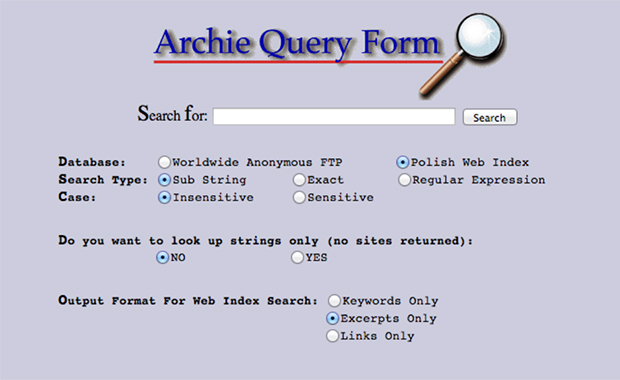Archie: The first internet search engine
Ever heard of “Archie” or the “Archie Query Form?” Or maybe you even remember using it back in the day? This Black History Month we are recognizing the amazing contribution of the search engine which has become a main pillar in everyday life. Being able to search any kind of information just at your fingertips is brought to you by Alan Emtage, a Black technologist who made the very first search engine in 1990.

Who is Alan Emtage?
Alan Emtage was born on November 27, 1964. Emtage graduated the top of his class and won the Barbados Scholarship to study and follow his passion of computer science at McGill University in Canada. He earned his bachelor’s degree in computer science and continued his education as a graduate student at McGill University in 1991. He worked as systems administrator in the university’s information technology department, where he was responsible for finding software for students and members of staff. Locating the information involved manually sifting through various file transfer protocol (FTP) servers on the brand-new – but promising internet. (Yes, it does sound very much like ancient times!) To save himself time digging through FTPs, he wrote code that would do the digging and sifting for him. He then named this FTP search engine “Archie” after the word “archive,” just without the v.
What is Archie?
Archie is the search engine before search engines. When we think about what a search engine is, we know it as simply putting a question or topic into the search bar, pressing enter, and then your results are displayed. What if we had told you in 1990 that the first search engine invented would evolve to give us the advanced capabilities of searching for recipes, zodiac signs, directions, weather, and anything else under the sun by 2023?Archie‘s purpose was much more specific: to create a centralized database containing the file transfer protocol servers that were all over the early internet. It was designed specifically for indexing FTP archives. But we can indeed call Archie the first internet search engine, as users could find specific files from the many FTP files across the internet and subsequentially download them as they wished. So, with the roll-out of Archie we had the original search engine. Many of the techniques implemented by Emtage and his supporting colleagues are still used by Google, Bing, Yahoo, and many other large and small internet search engines. In its heyday, Archie had 30 servers accounting for more than half of the internet traffic in Canada.
How was the Archie search engine used?
Archie operated in the same way as the search engine sites we now use 50 to 1,000 times a day. You would simply search for a name of a file and Archie would get to work sifting through the index of files to find what the user was searching for. The files would then be assorted for the convenience of the user. Alan Emtage not only ended up saving himself time as a systems administrator, but his invention coupled with the invention of the internet and computer would dramatically transform the way we interact with technology.What has been the impact of Archie?
The invention of Archie paved the way for our digital age as we know it. We can now search for almost everything almost everywhere. Social media platforms all have search engines embedded in their code so that you can locate friends, family, and company pages. Search engines on online shopping sites save us so much time when looking for specific items. Stretching from everyday use of searching for simple things to medical applications used by doctors and secure government databases, Archie revolutionized the way we interact with the internet. In the old days you would have to continuously sift through files and files of data to find exactly what you’re looking for – or even worse, you’d have to search through pages and pages of documents. Now information and access are at your fingertips.Today we have giant search sites such as: Google, Bing, mail.com and many more. There are also search sites specifically for academic purposes of finding scientific research and a search engine has become an element of the vast majority of websites. You can simply just type in exactly what you’re looking for, press enter, and the most relevant information will be available for you. We have even become more advanced with the language we place in the search engines to receive targeted search results. The mail.com search engine located on our homepage is indeed a descendant of the first search engine, along with the search function in your inbox.
Alan Emtage’s invention pre-dated the modern internet that we know it. For all the convenience we are afforded as a result of the invention of the search engine, is afforded to our dear friend Alan Emtage and his invention Archie. Wherever there is a search engine, we have Archie and its creator to thank for that.
If this article got you curious, you can read more in our blog posts on African-American computing pioneers and the inventor of the internet.
And if you still don't have a mail.com account, you can create your free email address here.
Images: Archie Search interface by McGill University; Photo of Mr. Emtage by Tsutsumida Pictures/Internet Society
145 people found this article helpful.
Related articles